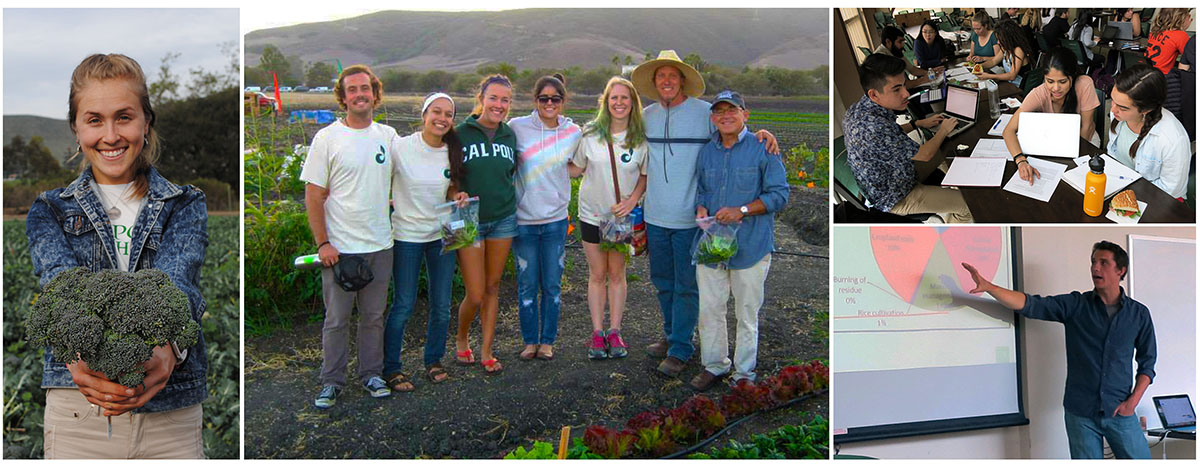Sustainability

Sustainability is often defined as the ability to meet present needs without compromising our ability to meet the needs of the future – a concept that stems from the UN Brundtland Commission Report (1987). There is a “threefoldness” to sustainability in that it is comprised of three pillars, often called the 3 P’s (People, Planet, Profit) or the 3 E’s (Equity, Environment, Economics). In a stable and healthy society, all three pillars must be strong, resulting in communities that are envi ronmentally sound, economically viable and socially just.
ronmentally sound, economically viable and socially just.
As an essential component of any society, agriculture plays a crucial role in achieving these goals and does so most powerfully when it incorporates the three pillars into its own practices. This is sometimes measured and monitored by what is called the “triple bottom line” in business, meaning that environmental and social factors are accounted for in measuring progress, in addition to economic ones.
Cal Poly became a signatory to the Talloires Declaration in 2004. This declaration is a pledge made by university administrators to foster environmental sustainability in higher education. It comprises a ten-point action plan for incorporating sustainability and environmental literacy in teaching, research, operations, service, outreach and community life at colleges worldwide. Center for Sustainability staff worked with students and sustainability leaders across the university to advocate for the adoption of the Talloires Declaration, and since that time has worked with the campus community to implement subsequent sustainability initiatives at Cal Poly. The Center has hosted numerous sustainability charrettes and conversations over the years to facilitate these initiatives and awareness of them.
In 2009, Cal Poly defined and implemented its Sustainability Learning Objectives. Sustainability-focused and related courses and programs at Cal Poly are identified in the Sustainability Catalog, or SusCat, which can be found at: suscat.calpoly.edu
The Center participates on Cal Poly’s Sustainability Advisory Committee and works closely with staff of the Facilities Energy, Utilities, and Sustainability department, which is dedicated to responsible management of the natural resources and operations of the Cal Poly campus. Their leadership has resulted in recognition for Cal Poly through numerous achievement awards. In 2019, Cal Poly received a gold rating in the STARS (Sustainability Tracking, Assessment & Rating System) program of the Association for the Advancement of Sustainability in Higher Education (AASHE). The Facilities department runs a Green Campus Program for students and has provided leadership on a number climate-related initiatives, including implementation of the Cal Poly Climate Action Plan and of the Second Nature Climate Leadership Commitment, which we signed in 2016. Please visit their Sustainability Page for more information and additional resources: afd.calpoly.edu/sustainability
In addition to collaboration with campus groups, the Center for Sustainability has had the honor of working with many leading organizations promoting sustainable agriculture, particularly in the West. To find out more about these and other local, national and international initiatives, please visit: RESOURCES
To find out more about Center for Sustainability projects, events and curricula in the realm of sustainable agriculture and food systems, please visit: ACTIVITIES




